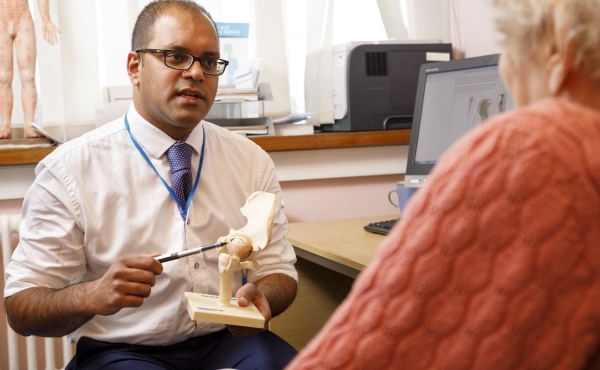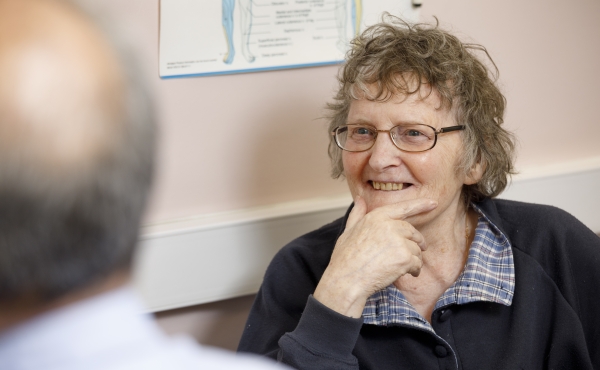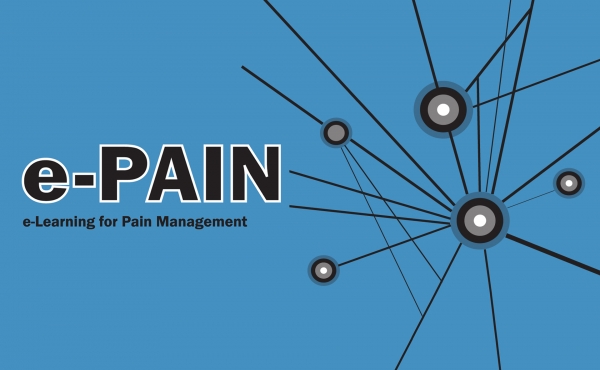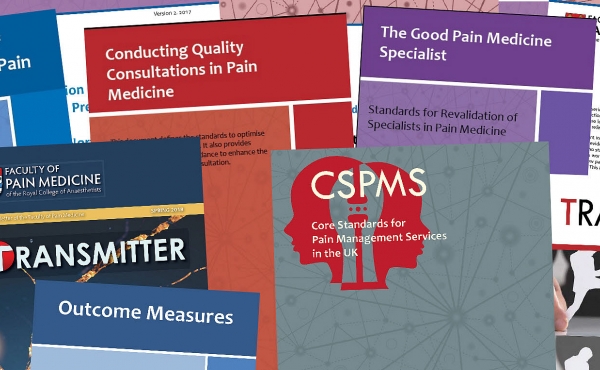What is Pain Medicine?
Pain management is a basic human right
Pain Medicine covers the treatment of people suffering from acute (under 3 months in duration) or chronic (over 3 months in duration) pain. The Faculty's aim is to improve the quality and experience and satisfaction of care for patients.
Pain touches everyone. It is a universal human experience and one of the most common reasons to seek medical advice. Pain is more than just suffering, it can impact on individuals and affect their day-to-day physical activity, emotional wellbeing and sometimes that of their family. Pain can affect an individual's ability to work and as a consequence impact on both their community and society as a whole.
Key messages in Pain
The Faculty has agreed some key messages with our partners in the British Pain Society, the Chronic Pain Policy Coalition and Pain UK that describe the national state of play with regards to chronic pain.
What is chronic pain?
Chronic pain is a persistent pain, which continues after healing or is the result of ongoing damage and includes spinal pain, post-traumatic pain (e.g. after amputation or surgery), pain involving the central or peripheral nervous system (e.g. post stroke pain, complex regional pain syndrome, diabetic neuropathy, post herpetic neuralgia and sciatica) and pain associated with other chronic diseases such as angina, arthritis, endometriosis, headache and pancreatitis. This includes cancer pain, which encompasses any pain in patients with cancer that is caused by the cancer or associated with the treatment.
Chronic Pain is also recognised as a Long Term Condition in its own right. Of all chronic diseases, pain related conditions had the biggest impact on quality of life – more so than cancer, chronic respiratory diseases and visual impairments (Sprangers et al. J Clin Epidemiol 2000 53: 895-907).
What is acute pain?
Acute pain (also known as inpatient pain) relates to pain occurring during tissue damage and repair for example during sudden illness, surgery, trauma and burns. The pain typically improves with tissue healing.
Who experiences chronic and acute pain?
- 8 million people have chronic pain of at least moderate intensity. A further 6 million have some chronic pain of some form.
- 6-8% population have severe pain that prevents some or most activities.
- The prevalence of chronic pain doubles over the age of 65, but chronic pain can be experienced by anyone.
Who are Pain Medicine Specialists?
A Pain Medicine Specialist is a doctor with specialist qualifications who undertakes the comprehensive assessment and management of acute, chronic and cancer pain in adult and paediatric patients, usually working within a multidisciplinary team. Most Pain Medicine Specialists are hospital based, though some work as specialists in the community or other health care settings.
Whilst most patients with pain can be managed in the primary or community sectors, some patients will need the involvement of specialists to manage their care.
Interested in pain interventions and medications?
The Faculty has a wide range of Pain Medicine patient information leaflets to help guide you.






